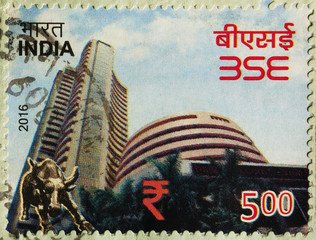We all understand savings accounts with banks. It permits effortless admission to our reserves while delivering protection from thievery and misuse. A Demat account accomplishes the identical for investors. In today’s time, the Demat account is a stock investment.
A Demat Account is an interpretation that is employed to control percentages and securities in electronic configuration. The complete form of the Demat account is a dematerialized account.
The objective of extending a Demat account is to maintain shares that have existed as acknowledged or dematerialized when transformed from material to electronic shares, thus completing share trading manageable for the users during online trading.
In India, repositories such as NSDL and CDSL nourish Free Demat account favors. Intermediaries, depository parties, or stockbrokers ameliorate these benefits.
Individual intermediaries may include Demat account expenses that range as per the account’s importance, subscription classification, and phrases and requirements between a depository and a stockbroker.

What is a Demat account?
A Demat Account or Dematerialised Account nourishes the installation of maintaining shares and guarantees in an electronic structure. During online trading, shares are accepted and retained in a Demat Account, consequently, simplifying effortless trade for the users.
A Demat Account contains all the acquisitions an individual constructs in shares, government securities, exchange-traded accounts, bonds, and mutual funds in one zone.
A compulsory instrument for maximizing your finances and safekeeping, Demat accounts construct share trading immediately and straightforwardly. It destroys the gambles and all the provocations that are included with material share credentials.
If you desire to invest in the stock market in India, opening a Demat account is imperative.
Before, shares were maintained in a physical condition via share certificates. Nevertheless, it produced the fundamental approach of share trading as unmanageable and complicated to assume at momentary notification.
To annihilate these restrictions, the National Securities Depository Limited (NSDL) was founded in the year 1996. They presented the notion of Demat accounts, which could be exploited to electronically accumulate the shares and securities of organizations.
Read More: What are the Top 10 Crypto Products to Explore in 2022?
If in case, you possess material shares, you are required to transform them into electronic documents before operating a Demat account. This procedure is typically comprehended as Dematerialization.
Demat facilitated the digitization strategy of the Indian stock trading market and executed more satisfactory governance by SEBI.
In the bargain, the Demat account diminished the hazards of accumulating, larceny, deterioration, and malpractices by accumulating securities in an electronic structure. It was preferably presented in 1996 by NSE.
Originally, the account commencement procedure was manual, and it handled investors several days to acquire it activated. Today, one can open a Demat account online in exactly five minutes.
The end-to-end digital procedure has donated to popularising Demat, which rocketed during the pandemic.
What is dematerialization?
Dematerialization is the operation of reversing the physical share certificates into electronic documents, which is a lot more effortless to preserve and is unrestricted from anywhere all throughout the world.
An investor who enjoys trading online requires to open a Demat with a Depository Participant (DP). The intention of dematerialization is to annihilate the requirement for the investor to maintain physical share certificates and streamline the seamless pursuit and keep an eye on the holdings.
Earlier, the share certificate issuance procedure was time-consuming and unmanageable, which Demat has assisted transform by hastening the complete procedure and accumulating security certificates in a digital structure.

Dematerialization habilitates physical stake certificates and debentures into electronic configuration. The phrase ‘Demat’ in Demat accounts represents Dematerialisation, as investors practically maintain Dematerialised shares and securities virtually.
In Dematerialisation, shares are word-for-word transformed into a digital structure and accumulated in Demat accounts. The primary purpose of Dematerialisation is to guarantee that the investors don’t have to contain physical shares and can trade and invest in actual time via effectively maintained shares in their Demat account.
Must Read: What is Trading with Leverage – Pros and Cons of Leverage Trading
To Dematerialise your securities, you must make a conversation with a Depository Participant (DP) to open a Demat account in India.
The DP operates two depositories the National Securities Depository Limited (NSDL) and Central Depository Services Limited (CDSL), to open Demat accounts in India.
when your Demat account is finally active, you can transform paper certificates into digital structures by introducing all your physical securities along with a Dematerialisation Request Form (DRF).
Also, keep in mind to desecrate each physical certificate by noting Surrendered for Dematerialisation on it. You will acquire a disclosure identification when you relinquish your share certificates.
What is the Importance of a Demat account?
A Demat account supplies a digitally protected and opportunely way of maintaining shares and securities. It eradicates thievery, forgery, failure, and deterioration of physical certificates.
With a Demat account, you can maintain an expansive variety of investments such as bonds, equity shares, government securities, mutual funds, and exchange-traded funds (ETFs).
Comparable to a bank account, a Demat account is either credited or debited each time you purchase or trade shares of an organization.
It not only annihilates undeserved paperwork but also assists in facilitating the strategy of share trading.
All of the Demat accounts in India are strengthened by two depositories, namely National Securities Depository Limited (NSDL) and Central Depository Services Limited (CDSL).

With a Demat account, you can transmit securities presently. Once the marketing is authorized, the shares are digitally transferred to your account.
Above all of this,
In case of circumstances like stock bonuses, mergers, etc., you accumulate shares automatically into your account.
Your Demat account details concerning these shiftings are unrestricted online by merely logging into the website. You can deal on the go utilizing your smartphone or desktop.
So, there is no need for you to visit the stock exchange to transact. You also appreciate the concessions of the smaller transaction expenses since there is no stamp duty applied with the transfer of shares.
These characteristics and advantages of a Demat account promote a more extensive marketing magnitude by investors, thus improving the possibility for lucrative recoveries.
Demat account has driven it more comfortable to regulate the stocks. The Indian exchanges currently pursue the settlement cycle of T+2 days encouraged by the Demat account.
You reimburse the seller on the second business day when you purchase shares following the settlement cycle, and your Demat account conveys credited without one’s control with the bought securities.
Demat account has created the procedure of security trading seamlessly and without any obstacles.
Here are a few advantages of a Demat account:
- Seamless and instantaneous transfer of shares
- Eases digitally secured accumulation of securities
- Annihilates thievery, forgery, loss, and deterioration of security certificates
- Uncomplicated pursuit of trading activities
- Access around the clock
- Permits to count inheritors
- Involuntary credit of bonus stocks, rights issues, split shares
How does a Demat Account work?
Selling through a Demat account is comparable to the approach of physical trading, besides that a Demat account is electronic. You commence trading by positioning and order via your online trading account.
For this objective, connecting trading and Demat accounts is essential. When an order is determined, the exchange will proceed with the order.

The essence of a Demat account is homogenous to a savings bank account. Precisely like an individual can accumulate currency in the electronic documents in the savings account, the investor can accumulate securities into the Demat account of a depository participant (DP) is analogous to the NSDL or CDSL.
When stakes or securities are bought, the Demat account is credited. Regardless, the account is debited when stakes or securities are marketed.
For transacting in equity and stakes via your Demat account, it is a requirement to merge it into your trading and savings account.
Demat account components the market worth of shares and the within easy reach of shares is substantiated before the definitive processing of the order.
On the culmination of the processing, shares are then remembered in your information of holdings. When a shareholder desires to market shares, a delivery teaching notation has to be equipped with fragments of the stock.
Claims are then debited from the account and the matching money worth is credited to the trading account.
Having a Demat account is imperative per the Depository Act perished in 1996. To promote it, the National Securities Depository Limited (NSDL) was created in 1996.
Interesting Read: What is CMP in Stock Market? The Thought Tree
The Central Depository Services Limited (CDSL) evolved into the second such organization three years later. Concurrently the two mechanisms are the keeper of all the electronic securities controlled by investors.
They deliver the Demat account opening service through diverse depository participants. Both mechanisms and their associate brokers are recorded with SEBI.
The Demat account opening procedure implicates three detachments and they are your bank, the depository party, and the depository.
Organizing your bank account with your Demat account is imperative for trading is done without any obstacles.
Connecting your account details confirm when you purchase shares, the capital fetches debited straight from your bank account, and when you market, the payoffs get credited without any external efforts.
A depository party can be a non-banking monetary organization, a bank, or a even stockbroker.
You would need to come into conversation with a DP to open a Demat account. The third party is the depository. They contain the Demat account in place of you.

What are the different Types of Demat accounts?
When you are considering opening a Demat account, investors require to prefer a particular classification of the Demat account that conforms to their profile carefully.
The most typical kind of classification is a normal Demat account. Any Indian investor or resident Indian can open a typical Demat account within an occasional minute of operating an online account opening operation.
Apart from the standard Demat account, there are two other kinds of classification for a Demat market. Let’s get a glimpse at them.
There are two varieties of Demat accounts Repatriable Demat accounts and Non-repatriable Demat accounts.
Repatriable funds are deposited in an independent bank account comprehended as the Non-Resident External Account (NRE account). Repatriable funds are those funds that can be shared abroad.
The investments constructed from these accounts are possessed in a Repatriable Demat account contains the investments constructed from repatriable funds.
In different circumstances, non-repatriable funds are those funds that cannot be taken or transmitted abroad and are deposited in a separate bank account comprehended as the Non-Resident Ordinary Account (NRO account).
The Non-repatriable Demat account maintains the investments created from non-repatriable accounts. Capital can efficiently be assigned from an NRE to an NRO account.
Nevertheless, once the transfer is constructed, the repatriability is relinquished and the cash cannot be transmitted around to the NRE account.
SEBI has forced it to become obligatory for all investors to have a Demat account. You can’t trade in the Indian stock exchange if you do not hold a Demat. Revise yourself on the account opening procedures, and expenses, and determine an authorized depository participant.
There is a checklist of records that are required to open a Demat account, which includes personal details and bank/income details.
Here is a list of all the documents that is required:
- Proof of identity
- Proof of address
- Proof of income
- Proof of bank account
- PAN card
- Passport size photographs
The online methodology has made the account opening procedure a lot more uncomplicated for users. You can now establish a Demat account by presenting records and finishing KYC online.

What are the Features of the Demat account?
By opening a Demat account, you can access many useful features.
You must exclusively mail a duly signed Delivery Instruction Slip (DIS) to your depository participant to transmit your shares.
Loan collateral:
You can engage the securities you maintain in a Demat account and utilize them as collateral for securing a loan from a financial organization.
Temporary freeze:
You can, for the time being, freeze your Demat account for a specific period of time. Nevertheless, this characteristic is normally only driven unrestricted only if you maintain a distinctive number of shares in your account.
Quick transfer of advantages:
The most reasonable of the Demat accounts deliver a brisk transfer of advantages such as dividends, bonus issues of shares, stock splits, interest, and repayments.
Accelerated e-facility:
NSDL qualifies you to transmit instruction titles to your depository party electronically. This not only creates the whole procedure quicker but also negligibly unmanageable.
More leisurely holding:
Sustaining physical certificates is ungainly and treacherous. Opening a Demat account digitizes the certificates facilitating more leisurely holding and counted security.
Multiple Access Points:
Being completely digital, Demat accounts can be accessed from anywhere using any digital device like computers, mobile phones, or other smart devices.
What are the different Benefits of a Demat Account?
One of the most significant benefits of a Demat Account for investors is that it exists digitally. In spite of that, multiple different benefits of the Demat Account can be documented as pursues.
A fundamental benefit of the Demat Account is that it is more unassailable than maintaining physical shares which can get misplaced, sabotaged, or looted.
2. No fraud or thievery:
Since the Demat Account is electronic in essence, the hazard of these documents getting looted, vandalized, or mislaid does not exist.
3. Consistent trading and transfer:
Unlike exhilarating physical certifications, Demat Accounts authorize the transfer of shares rapidly and firmly. This decreases order processing periods.
4. Descending price:
Physical share certifications entice documentation and stamp duty, which supplements prices. With a Demat Account, all this is eliminated and an individual has the liberty to obtain a Demat Account in a trice.
5. Multiple access points:
A Demat Account is managed electronically, which effectively signifies that end users can retrieve the account from numerous trace junctures such as a mobile phone, a tablet, a personal computer, a laptop, and so on.
6. Reduced risk of loss of documents:
The probability of misplacing records is pretty much heightened in physical bonds and shares.
The shares can even be acquired as mislaid if an individual tends to undergo some kind of natural catastrophe that forces that individual to redirect.
Accordingly, accumulating shares in an online structure is a whole lot more reasonable and unassailable alternative as it stimulates that person to maintain an enduring digital catalog of your share.
7. Avoiding forgery :
In the circumstance of physical shares or bonds, the hazard of forgery is elevated.
But when it arrives to managing a paperless Demat account, an individual must and should hold all the required particulars, documents, and original data in you his or her record, and so that fraud or impersonation can be evaded.
8. Loan Facility:
Separated from utilizing it as a security deposit for savings, an individual can acquire multifarious bank loans via the securities that are retained in their Demat account.
The securities can be assured and certified as collateral for obtaining a loan from a particular bank.

9. Cost-Effective:
One of the mandate benefits of online transactions is price decline.
Likewise, if that person desires to open a Demat account online, it can alleviate his or her the expenditures like stamp duty and further handling charges essential for physical bonds.
The sole charge that is payable in the account is for brokerage. Nevertheless, if that person chooses discount brokers, that person shall be capable enough to preserve better.
10. Time Saver:
The time taken for purchasing and marketing shares utilizing a Demat account is at its tiniest. Therefore, the liquidity of shares is more uncomplicated in this case.
On the other hand, transferring physical shares was a protracted methodology.
Online transactions are processed in a flash in view of the fact that the securities are accumulated in a dematerialized condition.
11. Easy Tracking:
Another benefit that you can avail yourself of while you open the account is that the number of physical documents is nil.
It consistently lessens the struggles to maintain a keen watch on each of them induvidually. Consequently, one can keep a manual catalog.
All of the records are carefully guarded and also carried along with the document of each and every investment that is being made.
12. No TDS on Demat Securities :
One of the major problems taxpayers encounter is TDS or Tax Deduction at Source.
However, the CBDT, or the Central Board of Direct Taxes has officially awarded dispensation from TDS when a Demat account holder completes charges from his account.
Besides, no TDS is subtracted from the claim that an individual will might have to acquire on their bonds and securities.
For dispensation from TDS, an individual must keep certain that they preserve their securities in the Demat method, and they are documented on both NSE and BSE.
13. Global Investment :
Globalisation is especially motivated by the multiplication of these accounts.
Foreign inGlobalizationvestors are offered uncomplicated admission to the Indian stock market via all these accounts, in a sense of profiting from the economizing of the Indian country.
Transaction fee
The transaction fee is assessed for either crediting or debiting securities to and from the account on a monthly ground, settling the payment to the transaction worth, which is subject to the lowest amount.
The fee also conflicts founded on the sort of transaction which is either purchasing or marketing. Some depository parties charge exclusively for debiting the securities, while others charge for both as well.
A few depository parties correspondingly charge the investor consistently if the instruction to either purchase or market tends to fail or is disclaimed.
In the bargain, service tax is furthermore charged by the depository parties.
In addition to the further fees, the depository party also charges a payment for restoring the shares from the physical to the electronic condition or vice versa.
This fee contrasts for both Demat which is the physical-to-electronic and remit which is the electronic-to-physical recommendations.
For Demat transactions, a few depository parties charge a balanced payment per recommendation in proliferation to the inconsistent fee per certification, while all the others tend to charge merely the irregular fee.

For example, Stock Holding Corporation has demanded Rs 25 as the recommendation fee and Rs 3 per certification as the inconsistent fee.
Nonetheless, SBI has charged exclusively the varying fee, as Rs 3 per certification. Remat requests also include charges parallel to that of Demat.
Nevertheless,
Varying charges for remat are normally more increased than Demat.
A few of the supplementary characteristics generally proffered by banks are as pursues. Some depository parties proffer a systematic-trader account, demanding regular traders at more inferior velocities than the definitive charges.
Demat account holders typically needed to owe the depository party an advancement fee per account that will be modified against the multifarious benefit charges.
The account holder requires to increase the proportion when it drops below a specific amount stipulated by the depository party.
Read: What is Delivery in Stock Market? Complete Guide
Yet, if the holders correspondingly contain a savings account with the depository party, they can equip a debit monogram to the depository party for expending this charge.
Eventually, once determining a depository participant, it would be tactful to maintain all accounts with that depository party, so that the pursuit of prosperity accumulates disservice is more uncomplicated.
This is in view of the fact when estimating funds gains tax, the duration of holding will be defined by the depository party, and nonnative depository parties pursue diverse strategies.
For example, ICICI Bank utilizes the foremost in sooner out the technique to calculate the time of holding. The evidence of the price of an investment will be the contract notice.
Indian Banking System First, an investor has to approach a depository party and fill up an account opening record.
The account opening record must be reinforced by compositions of any one of the authorized records to function as evidence of originality and evidence of oration as bounded by the Securities and Exchange Board of India.
An investor must maintain his or her Permanent Account Number card in the source at the moment of opening the account which is mandated practically from the 1st of April, 2006.
All applicants must bear authentic records for validation by an accepted administrator of the depository party, beneath his signature.
Recent blog
Course
- Unlocking the Mysteries of Bull Markets: A Comprehensive Guide
- Understanding Blue Chip Stocks: Definition, Examples, and Investment Strategies
- Understanding Volatility: What Is Volatility in the Stock Market?
- What is SEBI: Role, Structure, and Powers
- Understanding Bear Market: Types, Causes, and Consequences





